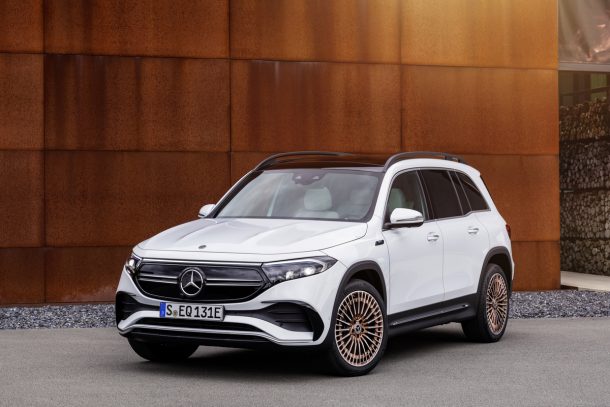California PHEV Owners Return to Gas Power
Electric vehicles are one way to carbon neutrality. Yet 20 percent of California PHEV owners have gone back to gas-powered vehicles.
Published in Nature Energy on April 26th by the Institute of Transportation Studies at the University of California, Davis, the study found that PHEV buyers in California were abandoning the technology at a rate of 20 percent, as were 18 percent of battery electric vehicle (BEV) owners.
According to the researchers, dissatisfaction with charging convenience, and not having level two, 240-volt charging at home, were the primary reasons.
The National Center for Sustainable Transportation (NCST) funded the analysis. The US Department of Transportation supported the University Transportation Centers program. The California Air Resources Board (CARB) paid for the questionnaire portion. They are one and the same agency that sniffs tailpipes for excess emissions.
Researchers Scott Hardman and Gil Tal had a premise: In order for EVs to be successful, it meant buyers needed to repurchase EVs. Abandoning the technology would prevent EVs from reaching 100 percent market share. They methodically surveyed California households who had purchased PEVs between 2012=2018. EVs’ success relied on adopters continuing to purchase EVs. 18 percent of EV owners and 20 percent of PHEVs were dissatisfied enough to return to gas-powered vehicles.
As noted by cnet.com, the problem centers around at-home charging. Level 2, 240-volt charging, or a lack thereof, is what led to discontent. Without the ability to recharge your EV at home, all the benefits of EV ownership go out the window. The lack of fast public chargers is a problem. Chargers that aren’t fast enough in comparison to refueling your car also diminished the EV experience.
Half the owners who bought another EV had Level 2 charging access, yet 30 percent who had access to Level 2 charging still decided against buying another EV. Their conclusion? It was pretty much even whether California PHEV owners decided to buy another EV or not. As the technology improves and charging installation is bundled with the purchase of an EV, it should help the green movement grow.
[Image: Mercedes-Benz]
With a father who owned a dealership, I literally grew up in the business. After college, I worked for GM, Nissan and Mazda, writing articles for automotive enthusiast magazines as a side gig. I discovered you could make a living selling ad space at Four Wheeler magazine, before I moved on to selling TV for the National Hot Rod Association. After that, I started Roadhouse, a marketing, advertising and PR firm dedicated to the automotive, outdoor/apparel, and entertainment industries. Through the years, I continued writing, shooting, and editing. It keep things interesting.
More by Jason R. Sakurai
Latest Car Reviews
Read moreLatest Product Reviews
Read moreRecent Comments
- Golden2husky This was a common topic at work - kids learned how to drive, and now another car is needed. I was amazed at all the excuses made about how their kid must have a new car. Used cars are a "risk" for breakdown, they are not as safe, etc...which is all BS of course. How much difference in safety is there between a new car and the same model that is five years old? Maintained cars don't break down very often. I've driven cars for far, far longer than most and have been towed exactly twice in my entire driving career (about 800,000 miles). While I wouldn't put my daughter into a 15 year old car and let her drive across the country, I would be fine with a 5 year old car that was well cared for. Let's be realistic - new drivers are likely to get into a fender bender - why do that to a new car. I was thrilled to get an 8 year old car for college back in the day even though my folks could afford to buy all of us new cars if they wanted to. If you Want to buy your kid new, go ahead. Just don't freak out when they come home with a fresh dent.
- CanadaCraig Can you eventually go to prison for driving without a licence in the US?
- CanadaCraig To hell with the UAW.
- CanadaCraig First I'll answer the question. YES. Toyota, Mazda and Subaru are doing the right thing. That said... If only those pushing for an all EV world would care as much about the 1 BILLION earthlings that make less than $1 a day.
- Redapple2 All this BEV investment. A bigger impact (less oil consumption) would have been made if we had made PIG UP trucks smaller since 2000 and not HUGEr. (And raised gas tax by $2-3/gallon.)


































Comments
Join the conversation
I bought one just to get on the carpool lane for free, and now that deal is over I am no longer going to buy an EV / plug in. If the price is right I might consider in the future but at the moment I like my gas car better.
I have a PHEV, and my next car is going to be a gasser, because I want to do some track driving. But, I'm certainly an edge case. I may keep the PHEV to use as an additional car, because it's been such a good car and I won't get that much money for it. If I didn't want to drive on the track, I'm not sure what I'd get. EVing around town is so much nicer than driving a gasoline powered car, it would be hard to give that up, but I don't see an EV that I'd really like. Since what I have has been so reliable and cheap to run, I'd probably just keep it for a few years and see if something else I really liked came along.